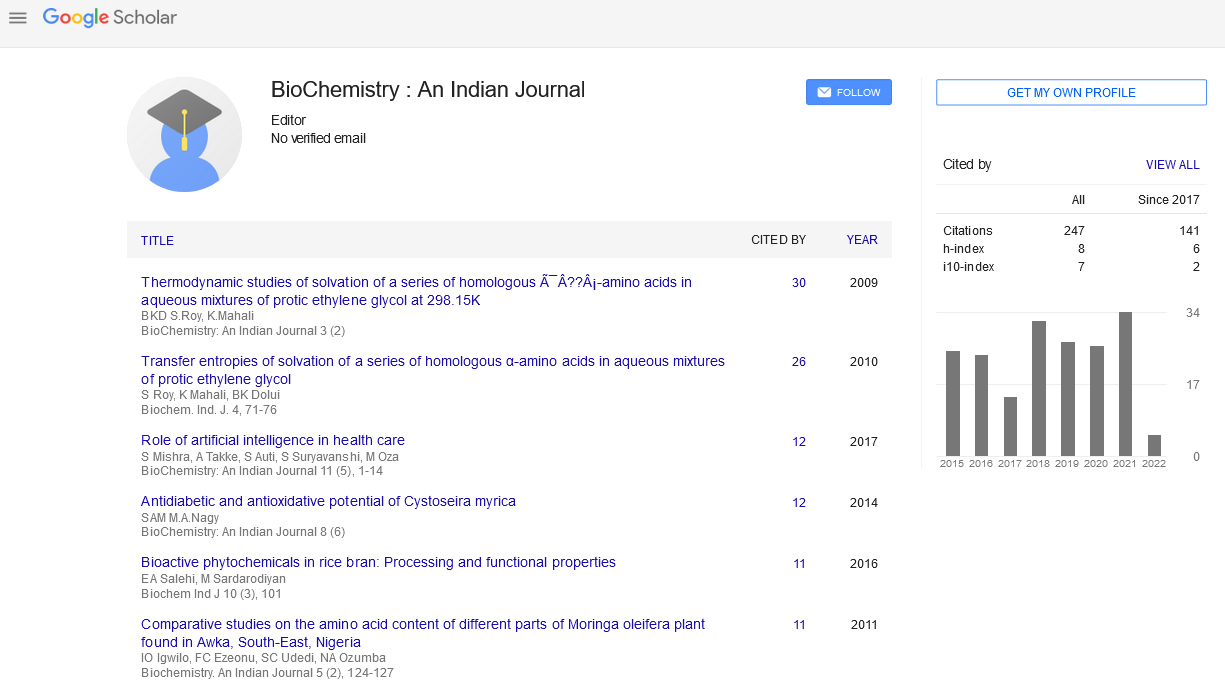Abstract
Role of cardiac enzymes in early diagnosis of myocardial infarction in tertiary care hospital in South India
Author(s): Suresh Babu P, Jeevan K Shetty, Mungli PrakashBackground: In recent years cardiac troponin (cT) has revolutionized the diagnosis and management acute myocardial infarction (AMI). But in India most of tertiary care hospitals are depending on creatinine kinase (CK), CKMB and asparte transaminase (AST) for the diagnosis of AMI due to unavailability of cT or due to high cost. In the present study we measured CPK, CK-MB and AST in patients with acute chest pain and in healthy controls to evaluate the usefulness of above cardiac enzymes in early diagnosis andmanagement ofAMI in tertiary care hospital in south India.Methods: Blood samples from 75 patients with acute chest pain were obtained immediately after admission and after 24 hours and analyzed for CK, CKMB and AST using automated analyzer. These patients were grouped into group I (n=50) with ECG and cardiac marker proven AMI and group II (n=25) patients with non specific ECG changes without having any rise in cardiacmarkers (non cardiac chest pain). Blood sampleswere also obtained from healthy controls and analyzed for above parameters. Results: We found significant increase in CK, CK-MB, AST (p< 0.001) in group I patients compared to healthy controls and group II patients at admission. There was significant increase in CK, CK-MB, AST (p< 0.001) in group I patients 24 hours after admission compared to group II cases and also group I patients at admission. CK-MB levels correlated positively with CK and AST levels on admission as well as 24 hours after admission. According to our study CK- MB has got sensitivity 84% and specificity of 100%. Conclusions: CK-MB can be used as an effective marker in diagnosing AMI in hospitals in India where use of cT is not possible to due to unavailability, factor of affordability, and sometimes to the reduce cost burden on patients.

